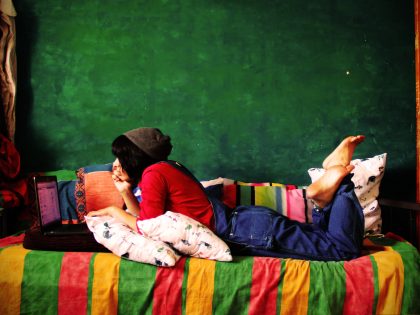
Lions in the rain
The 2025 AFCON final between Senegal and Morocco was a dramatic spectacle that tested the limits of the match and the crowd, until a defining moment held everything together.

The 2025 AFCON final between Senegal and Morocco was a dramatic spectacle that tested the limits of the match and the crowd, until a defining moment held everything together.

From national redemption and continental dominance to personal legacy and political ambition, the 2025 Africa Cup of Nations final means everything to Africans.

The rivalry between Sadio Mané and Mohamed Salah pushed them to unprecedented heights, but also links two seemingly distant and disconnected villages.

How Senegal rose to become one of the most fertile grounds in African football, and why this success still struggles to transform the local football economy.

Comment le Sénégal est-il devenu l'un des viviers les plus prolifiques du football africain, et pourquoi ce succès peine-t-il encore à transformer l'économie du football local.

Against a backdrop of global collapse, one exhibition used Chinua Achebe’s classic to hold space for voices from the Global South—and asked who gets to imagine the future.

A new documentary film examines the politics of waste work and discard infrastructures in Dakar.

Amid a flood of Western fast fashion waste, Dakar's designers upcycle discarded clothes into bold, sustainable styles.

Through Afro-futurist soundscapes blending tradition and innovation, Ibaaku’s new album, 'Joola Jazz,' reshapes Dakar’s cultural rhythm and challenges the legacy of Négritude.

African postcolonial cinema serves as a mirror, revealing the limits of escape—whether through migration or personal defiance—and exposing the tensions between dreams and reality.

As Africa’s first filmmakers made their unique steps in Africanizing cinema, few were as bold as Djibril Diop Mambéty who employed cinema to service his dreams.

Senegalese art historian El Hadji Malick Ndiaye on curating one of the two longest-serving biennales on the African continent.

How a Senegalese trade unionist inspired one of the continent’s greatest filmmakers.

The challenge for the new Senegalese government is how to translate promises into policy.

Le gouvernement du plus jeune président de l'histoire du Sénégal semble déjà incarner une vision rétrograde des femmes.

The government of the youngest president in Senegal’s history already seems to embody retrograde views about women.

Incoming Senegalese president Bassirou Diomaye Faye is as much outgoing President Macky Sall’s creation as he is Ousmane Sonko’s.

If the savannas of West Africa are a new corporate mining frontier in the 21st century, it's because it is also home to the world’s longest-standing indigenous gold mining economy.

Fermée depuis juin 2023, l’université de Dakar est devenue le symbole de l’effondrement de la démocratie sénégalaise.

Closed since June 2023, the University of Dakar has become a symbol of the collapse of Senegalese democracy.